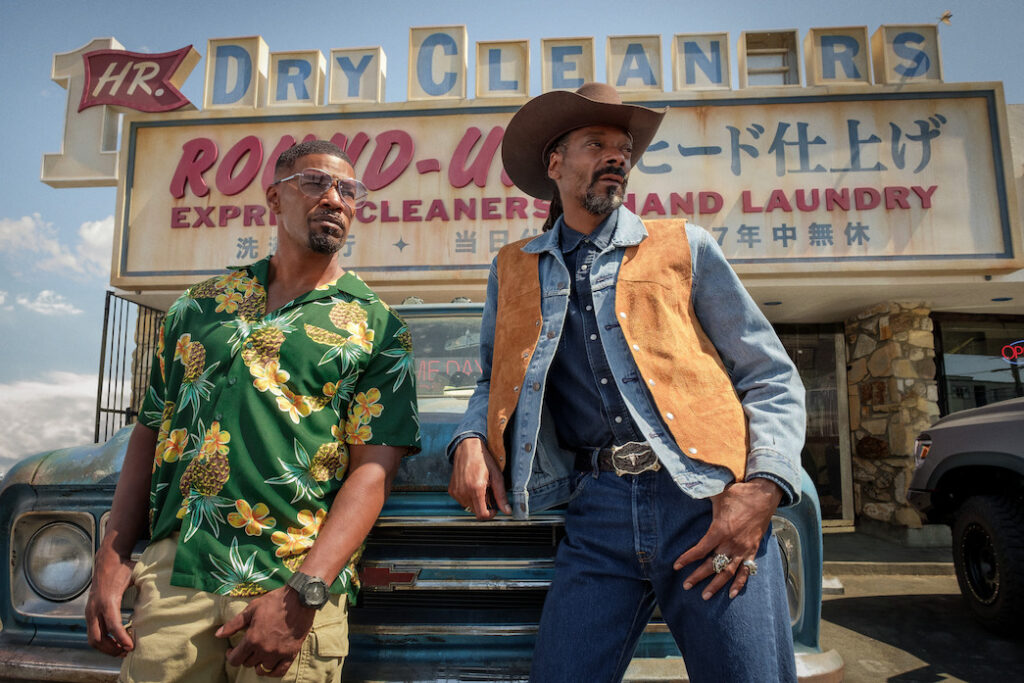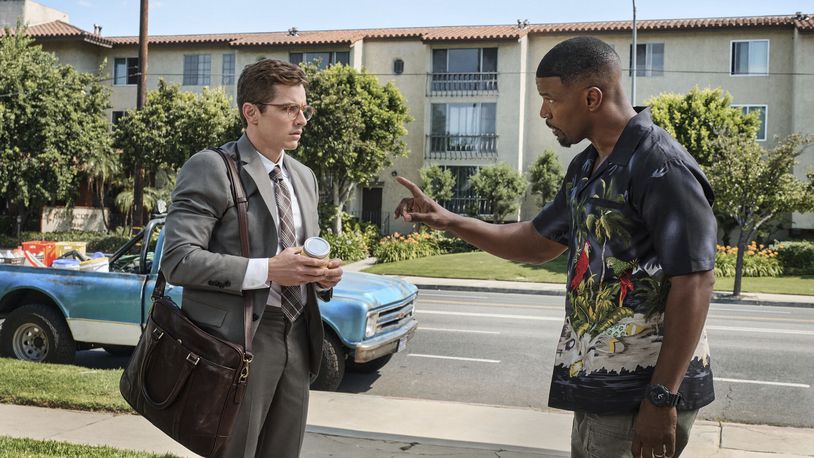Genre: Action/Vampire/Comedy
Premise: A family man uses the cover of being a pool cleaner in Los Angeles to hunt vampires.
About: Netflix is trying to recreate some John Wick magic. They’re going with the new industry trend of hiring a high profile stunt coordinator to direct. Put a B-level movie star in the lead role. Throw in a little mythology. And hopefully create something great. The film debuted on the streamer this weekend. Not surprisingly, John Wick alum Chad Stahlenski produced the film. He brought along young screenwriting superstar, Shay Hatten (who I’m guessing, with how many jobs he’s gotten over the last two years, is a billionaire at this point), to bump up the dialogue for an original script by first time screenwriter, Tyler Tice.
Writer: Tyler Tice & Shay Hatten
Details: 115 minutes

Day Shift is one of those scripts that comes across your desk and you think, “This is a movie.”
For those of you who wonder what I mean by that, a movie is something that can be marketed. That has a legitimate chance of being watched by a lot of people and therefore make money. It must feel larger than life. It must have high stakes. Two people on a road trip in Alaska – that’s not a movie. That’s a screenplay. Even if you were to make that movie – and sometimes they do turn scripts like that into movies – it’s still a screenplay at heart.
When you’ve got a pool cleaner who secretly kills vampires for a living? You’ve got a legit movie.
So when I saw this trailer pop up, I thought, “This is the perfect example of the kind of script you should be writing if you want to sell a screenplay.”
But there’s a weird thing about spec script subject matter that I’ve never quite been able to reconcile. Some of the things that help it become a movie are also, ironically, what sink it as a movie.
The main issue boils down to not having anything figured out beyond the marketable aspect of the script. The emperor has no clothes. Heck, he doesn’t even have underwear. That’s the feeling I got while watching Day Shift.
Day Shift follows 30-something, Bud, who lives in the San Fernando valley, and works as a pool cleaner, something his wife is none too thrilled about since they’re barely able to pay the mortgage and feed their 8 year old daughter. So Bud is feeling the heat to pick up the financial slack.
The thing is, Bud doesn’t really clean pools. He cleans the clocks of vampires. As in kills them. The pools are cover. He sneaks into the backyards of vampire home owners, pretends to do a little cleaning, then SHAZOW! He’s putting a silver bullet through your head. Or whatever they use to kill vampires. A wooden stake or something.
He then takes their fangs and sells them on the black market. The more prestigious the vampire fang, the more money he gets.
What Bud doesn’t know is that the last vampire he killed was some special vampire so now the vampire elite is after him. This forces Bud to re-join the “union” of vampire killers, where he’s paired up, “The Other Guys”-style, with a nerdy union accountant, Seth, and the two try to kill more vampires as well as avoid the elite vampires. Shenanigans galore follow.

Just to remind everyone, we have a HIGH CONCEPT SHOWDOWN coming up in December. So I hope you’re writing your high concept scripts as we speak. Day Shift would definitely fall under the ‘high concept’ category.
What: AMATEUR SHOWDOWN – HIGH CONCEPT EDITION
When: Entries due December 1 by 8pm Pacific Time
How: E-mail me your title, genre, logline, any extra pitch you want to make about why your script deserves a shot, and, of course, a PDF of the screenplay.
Where: carsonreeves3@gmail.com
Anything else?: You can start sending in your scripts right now!
But the script is a reminder that coming up with a high concept is half the battle. You then have to actually write 100 pages of story that execute that concept in an entertaining way. And what I’ve found is that a lot of writers feel like they did the hard work already by coming up with the concept and therefore half-a$$ the creative choices throughout the script.
Those choices in Day Shift were often fine, mind you. But no reader or audience member in history has ever gotten excited about “fine.” In my book, fine is worse than “bad.” Because at least bad creates some emotion, albeit negative. Fine doesn’t create any emotion at all. Everything about this movie was fine.
Take, for example, the creative choice of the “union.” It doesn’t fit into the movie. It feels forced. The mythology underneath it is not strong enough to support the choice. It just feels like it’s there because another movie did it and, so, maybe it’ll work in our movie too.
Never EVER think that way as a writer. Don’t do what other movies do. Other movies have their own set of problems. Your movie has it own culture, its own unique set of circumstances. So make decisions that are best for your movie only. I mean give me a break. You’ve got a Men In Black like secret organization for vampire killing. It was a dumb idea.
This movie works so much better if killing vampires is an informal thing. It’s fine if there’s a bigger network but the second you have this Steve Spielberg like organization, it took a gritty gnarly crazy cool job and buttoned it up. It made it lame.
I get that it gives us Seth. And Seth is, arguably, the best part of the movie. Especially (spoiler) when he turns into a vampire himself (which was the lone strong creative choice in the script). But there were other ways to team Bud up with a character like Seth that didn’t require some stupid underground organization that doesn’t feel like it has anything to do with your movie.
Another big issue with the film was that the main character was boring. And he shouldn’t have been. Tice and Hatten did everything you were supposed to do in creating Bud. He’s a poor guy trying to support his family who loves his daughter more than anything. Why aren’t we rooting for this guy?
This is the kind of stuff that keeps me up at night. I’m not joking. I go to sleep wondering why some of these characters work and others don’t despite both following the same playbook. Bud is clearly likable. He’s a selfless person who wants to make a good life for his daughter. Why doesn’t he work?
The conclusion I came to was that he’s boring. A character still has to be a person. They can’t just be a combination of correct screenwriting choices. Save the cat. Be a nice human being. Care for a weaker character. Sure, those help. But your character still needs a unique likable personality. They need to feel like their own person. Bud doesn’t feel like anyone. He’s more vanilla than my Muscle Milk protein powder.
So remember that. Separate from the “likable traits,” make sure your protagonist has their own unique personality.
This is not a terrible movie. It’s just a forgettable one. Which is disappointing because I was hoping for more.
[ ] What the hell did I just read?
[x] wasn’t for me
[ ] worth the read
[ ] impressive
[ ] genius
What I learned: Figure out who your characters are by asking ,“What would their ringtone be?” Seth is a nerdy by-the-book sorta douchebag. The reason his ringtone – Nicleback – is one of the funnier moments in the movie is because it perfectly encapsulated him. So when you’re trying to figure out what kind of funny a character in your screenplay is, ask yourself, “What would their ringtone be?” We don’t have to ever hear it in the film. But you should personally know it. By doing so, you’ll have a better feel for how to write that character.

